If you’ve ever had a chipmunk invade your garden, you know how frustrating it can be. These little creatures can wreak havoc on your plants, and they can be difficult to get rid of. In this article, we will provide you with some tips on how to keep chipmunks out of your garden for good. We’ll also discuss some of the most common methods that people use to try to get rid of these pests, so you can decide which approach is best for you.
Chipmunks and Their Behavior
Most people think that chipmunks are cute and harmless. But if you have a garden, you know that they can be pests. They eat your plants, dig holes in your yard, and generally make a mess. If you’re looking for ways to keep them out of your garden, read on.
Chipmunks are small, striped rodents of the family Sciuridae. They are usually found in deciduous forests and brushlands in North America, but are also common in mixed woodlands and coniferous forests.
Chipmunks typically have a reddish-brown back with black stripes running down their sides. Their bellies are white or cream-colored, and they have bushy tails. These animals range in size from four to nine inches long, not counting their tails.Chipmunks are diurnal creatures, meaning they are active during the day. They typically sleep in their burrows at night. These animals are loners and only come together to mate. After mating, the male and female go their separate ways.
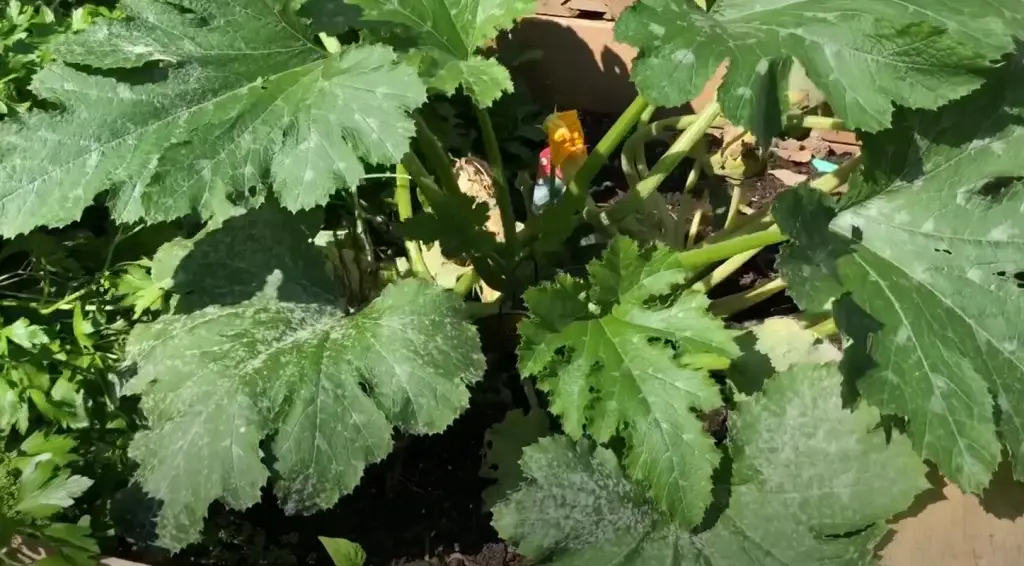
Chipmunks are omnivores, which means they eat both plants and small animals. Their diet consists of acorns, nuts, berries, insects, frogs, snakes and small birds. Chipmunks gather food in their cheek pouches and store it in their burrows for winter. [1]
How Chipmunks Can Harm Your Garden
Chipmunks are attracted to gardens because they offer food and shelter. These animals will eat just about anything, including fruits, vegetables, flowers, bulbs and seeds. They may look cute but they can do a lot of damage to your garden. Below are only a few of many ways chipmunks can harm your plants and property.
They burrow holes
Chipmunks burrow holes in the ground to create their dens. These holes can damage plant roots and disrupt the growth of your plants. In addition, these animals will also eat the roots of your plants which can lead to stunted growth or even death.
Chipmunks also dig holes to store their food. If you have a lot of chipmunks in your garden, they may bury so much food that it becomes difficult for your plants to get the nutrients they need from the soil.
They eat your plants
Another way chipmunks can harm your garden is by eating your plants. As mentioned earlier, these animals will eat just about anything. This includes fruits, vegetables, flowers, bulbs and seeds. In fact, chipmunks are one of the most common animals that cause damage to gardens and crops.
If you have a chipmunk problem, it is important to take action immediately. These animals can do a lot of damage to your garden in a short amount of time. Below are some tips on how to keep chipmunks out of your garden.
They can disturb your birds
If you have bird feeders in your garden, chipmunks will most likely find them. These animals are not only attracted to the food but also the shelter that bird feeders provide. In addition, chipmunks will oftentimes steal food from birds which can lead to starvation.
Salmonella is a common disease that these animals carry and it can be deadly to birds. Therefore, it is important to take measures to keep chipmunks out of your garden if you want to protect your birds.They can carry diseases
Yes, chipmunks can also carry diseases that can be harmful to humans and animals. Some of the diseases these animals can transmit include rabies, salmonella and tularemia.
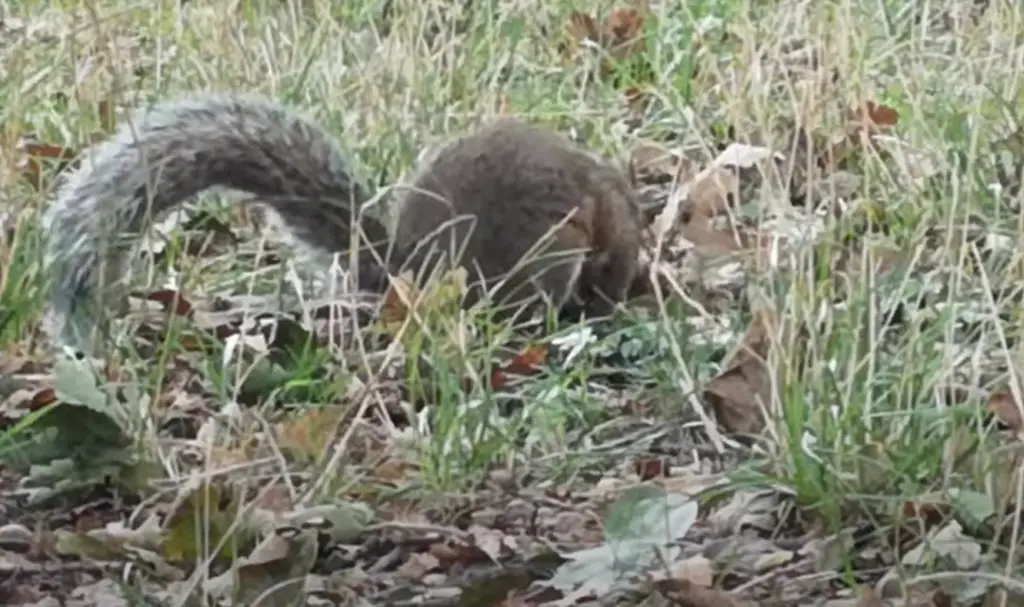
Rabies is a disease that affects the nervous system and is fatal to humans if left untreated. The disease is usually transmitted through a bite from an infected animal.
Salmonella is a bacterial infection that can cause diarrhea, vomiting, fever and abdominal cramps in humans. It is usually transmitted through contaminated food or water.
Tularemia is a bacterial infection that can cause fever, chills, headaches, body aches and swollen lymph nodes. It is usually transmitted through contact with infected animals or their tissue. [2]
Ways to Keep Chipmunks Out of Garden
As you can see, chipmunks can be harmful to your garden in many ways. If you have a chipmunk problem, it is important to take action immediately. Below are some tips on how to keep these animals out of your garden.
Remove any food sources that may attract them
Of course, prevention is always the best method.
Make sure to keep your garbage cans sealed tight and pick up any fallen fruit from your trees. You may also want to consider getting a dog; chipmunks are naturally afraid of predators.Another way to prevent chipmunks from coming into your garden is to make it less inviting for them. Remove any areas of dense vegetation or piles of leaves and wood, as these provide perfect places for chipmunks to build their nests. Keep your lawn trimmed short, and trim back any bushes or trees that touch the ground. [5],[5]
Seal up any potential entrances
You should also inspect your home for any potential entrances that chipmunks could use. Look for cracks in the foundation, gaps under doors, or holes in screens. These animals are very small, so even a tiny opening can be enough for them to squeeze through. seal up any openings with caulk or wire mesh to keep them out. [2]
Install fences or barriers
Another option is to install fences or barriers around your garden. This will create a physical barrier that chipmunks cannot cross.
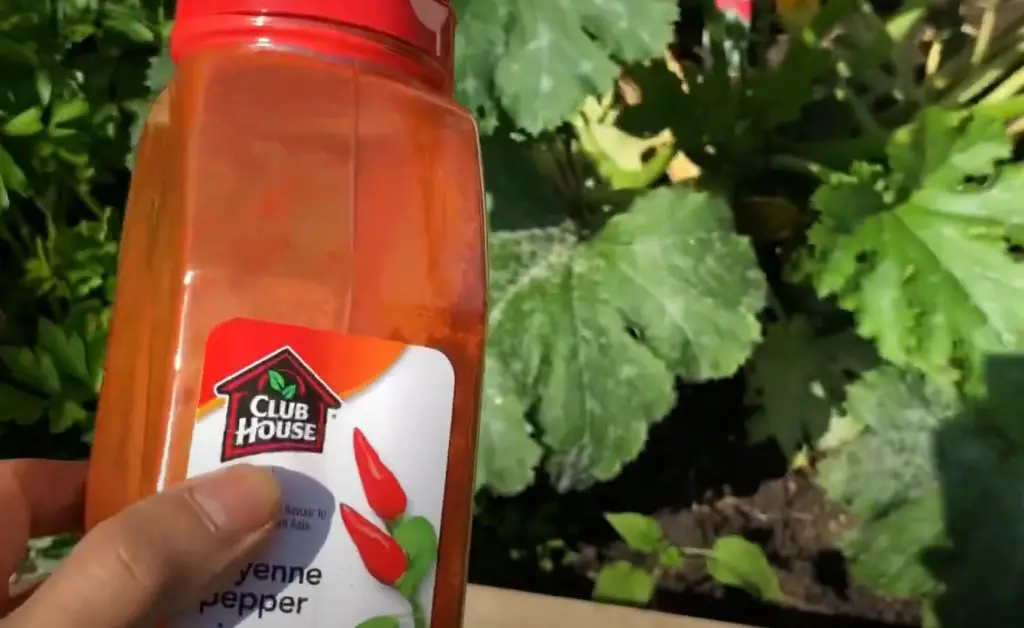
The type of fence you need will depend on the size of the animal you are trying to keep out. A chicken wire fence can be effective, but you may need something stronger if you are dealing with larger animals. [3],[5]
Use an L-shaped footer to prevent them from burrowing
If you have a problem with chipmunks burrowing into your garden, an L-shaped footer can be very effective. This is a piece of metal or plastic that is placed around the perimeter of your garden, buried about six inches deep. The L-shape prevents the animals from being able to dig underneath it and enter your garden.
Set traps
One way to get rid of chipmunks is to set traps. There are many different types of traps available for catching chipmunks. The most common type is the live trap, which is a cage that catches the animal but does not kill it. This allows you to release the chipmunk into the wild far away from your home.
Another type of trap is the lethal trap, which kills the animal. These should only be used as a last resort, as they can be dangerous to other animals and humans if not used correctly.
If you are not comfortable with setting a trap yourself, you can always hire a professional to do it for you.Traps can be an effective way to get rid of chipmunks, but they should be used as a last resort. If you have small children or pets, they could potentially get hurt by the trap.
If you do decide to use a trap, baiting chipmunks with peanut butter or other nuts is usually most successful.
You will also need to check the traps regularly and dispose of any caught animals properly. Do not release them in your neighborhood, as they will only find their way back to your garden.
Set fake predators around your garden
One way to keep chipmunks out of your garden is to set fake predators around the perimeter. This will make the chipmunks think twice before entering your garden. Some fake predators that you can use include:
- Fake owls
- Fake snakes
- Fake cats
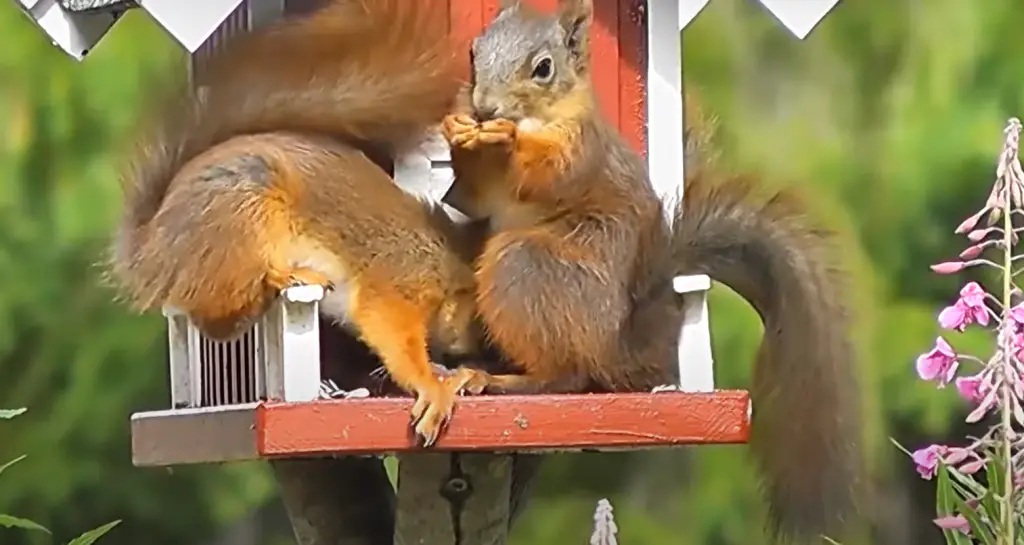
Those are all the natural predators of chipmunks. If you set them around your garden, the chipmunks will be less likely to come near.
Sprinkle spices or other natural deterrents
You can also use chemical repellents to keep chipmunks away from your garden. These products work by releasing a strong scent that animals find unpleasant. Some common ingredients include cayenne pepper, garlic, and cloves.
Another option is to make your own chipmunk repellent by mixing together equal parts water, cayenne pepper, and dish soap. This solution can be sprayed directly onto plants or around the perimeter of your garden.
If you have pets, be sure to keep them away from these areas until the repellents have dried completely. [3],[4],[5]
Install ultrasonic devices
Ultrasonic devices are a popular choice for those looking for an effective way to keep chipmunks out of their garden. These devices emit high-frequency sound waves that are said to be effective in deterring small animals such as chipmunks.
Chipmunks are scared of ultrasonic devices because they emit a high-pitched noise that is unpleasant for them. These devices are often used to keep pests like chipmunks away from gardens and other areas where they are not wanted.
There are many different brands and models of ultrasonic pest control devices available on the market, so it is important to do some research before purchasing one. It is also important to follow the manufacturer’s instructions carefully when using these devices.
Some people swear by ultrasonic pest control devices, while others find them to be ineffective. If you decide to give one of these devices a try, it is important to place it in an area where chipmunks have been seen frequenting, such as near their burrows or along their usual pathways.
It is also a good idea to move the device around from time to time so that the chipmunks do not become accustomed to its presence. If you find that the ultrasonic device is not working, there are other methods of keeping chipmunks out of your garden, which will be discussed in the next section.
In most cases, ultrasonic devices can be plugged into an outlet and left to do their job. However, some models require batteries, which means they may need to be replaced more often. [4],[5]
Install sprinkles or a water spray system
Similarly to ultrasonic devices, sprinklers or water spray systems can also be used to keep chipmunks out of your garden. These devices work by spraying water at the animal when they come into contact with a sensor, which startles them and makes them want to leave the area.
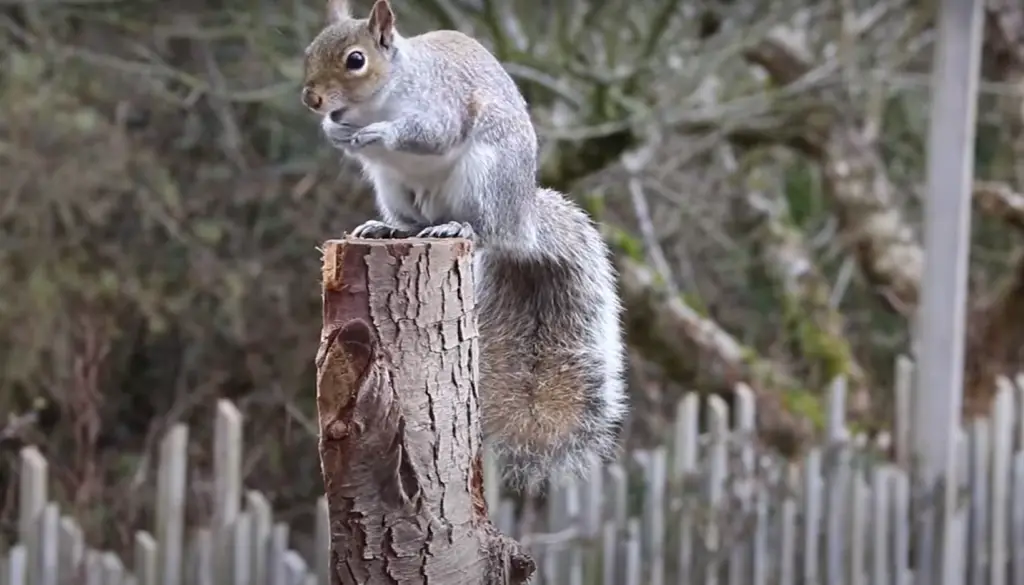
In most cases, these systems can be left on 24 hours a day without any problems. However, if you have pets, you may want to turn the system off during the day so that they can enjoy your garden without getting wet.
Installing a sprinkler or water spray system in your garden is a great way to keep chipmunks away without using any harmful chemicals. However, a sprinkler system is generally more expensive than other methods of keeping chipmunks out of your garden. Still, it is a good option if you have a large garden or if you live in an area where chipmunks are especially prevalent. [4],[5]
Spread used coffee grounds around your garden
Coffee grounds can also be used to deter chipmunks from entering your garden. These grounds contain a chemical that is said to be unpleasant for chipmunks, which will make them want to stay away from the area.
In most cases, coffee grounds can simply be spread around the perimeter of your garden. However, if you have a large garden, you may need to use more coffee grounds.
Another option is to mix the coffee grounds with water and spray them directly onto plants or around the perimeter of your garden. If you have pets, be sure to keep them away from these areas until the coffee grounds have dried completely. [5]
Install bird feeders in hard-to-reach areas for chipmunks
Just like squirrels, chipmunks are attracted to bird feeders. However, unlike squirrels, chipmunks cannot climb very well. This means that if you install your bird feeder in a hard-to-reach area, the chipmunks will be less likely to be able to get to the food.
Installing bird feeders in hard-to-reach areas is a great way to keep chipmunks away from your garden and out of your yard. These animals are attracted to the smell of food, so by keeping the feeders out of their reach, you can deter them from entering your property.
It is also important to pick up any spilled seeds that fall to the ground. These seeds can attract chipmunks, which will then enter your garden in search of food.
In most cases, simply picking up the spilled seeds will be enough to deter chipmunks from entering your garden. However, if you have a lot of spillage, you may need to remove or replace the bird feeder altogether. [2]
Let your pets out into the garden
If you have pets, letting them out into the garden can also help to keep chipmunks away. These animals will often chase away any chipmunks that they see, which will make these pests want to stay away from your property.
It is important to let your pets out into the garden on a regular basis so that they can patrol the area and chase away any chipmunks that they see. However, if you only let your pets out occasionally, the chipmunks may become bolder and start entering your garden more frequently.
Allowing your pets to roam freely in your garden is a great way to keep chipmunks away. These animals will often chase away any chipmunks that they see, which will make these pests want to stay away from your property.
However, it is important to let your pets out into the garden on a regular basis so that they can patrol the area and chase away any chipmunks that they see. Otherwise, the chipmunks may become bolder and start entering your garden more frequently.
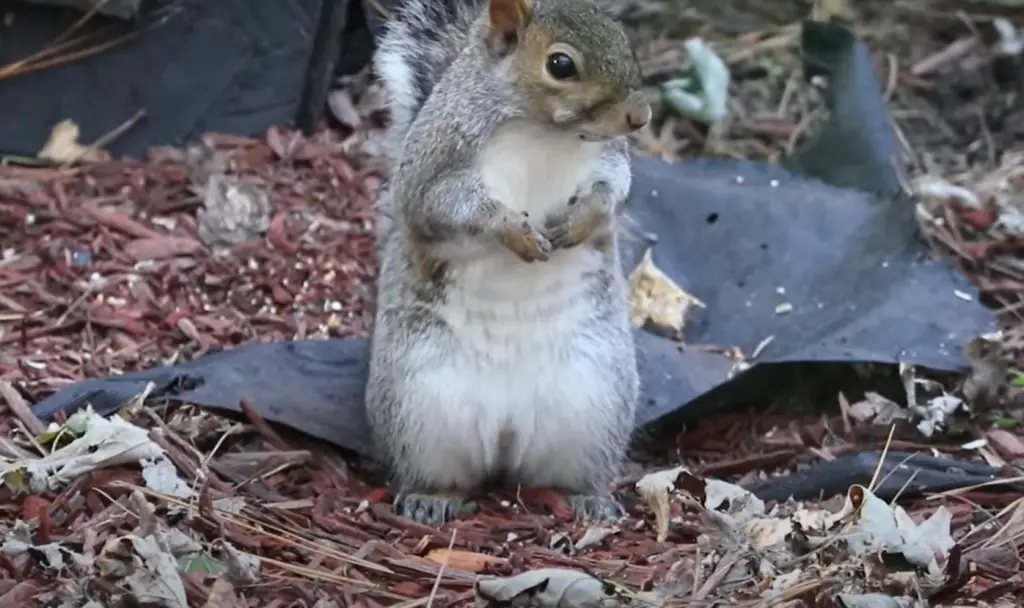
If you have a dog, you may also want to consider training them to chase away chipmunks. This can be done by teaching them to bark or growl at these animals when they see them in the garden.
Training your dog to chase away chipmunks is a great way to keep these pests out of your garden. However, it is important to make sure that your dog does not actually hurt the chipmunks, as this could cause them to become more aggressive and start entering your garden more frequently.
Even wandering pets can effectively intimidate chipmunks and other small animals. So, if you have a pet that likes to roam around the neighborhood, letting them out into the garden on a regular basis can also help to keep chipmunks away. [2],[5]
FAQ
Can chipmunks harm my house?
Chipmunks are rodents, and like all rodents, they have sharp teeth that they use to gnaw on things. This can include the structural parts of your house, like wires or pipes. If you have an infestation of chipmunks, they could cause significant damage to your home.
Additionally, chipmunks are known to carry a number of diseases that can be harmful to humans. These diseases include rabies, hantavirus, and Lyme disease. While it’s unlikely that you’ll contract one of these diseases from a chipmunk, it’s still important to be aware of the risks.
How do I keep chipmunks away from my garden?
There are a few things you can do to keep chipmunks out of your garden. First, make sure that there is no food source for them. This means keeping your garbage cans tightly sealed and removing any fallen fruit from your trees. If you have a bird feeder, try moving it away from the edge of your property.
You can also try to deter them with physical barriers. Chipmunks are good climbers, so a fence may not be enough to keep them out. Instead, try installing wire mesh around the perimeter of your garden. Make sure the mesh is buried at least six inches underground and extend it up about two feet above ground level.
Will coffee grounds keep chipmunks away?
Coffee grounds are often used as a natural repellent for many pests, and chipmunks are no exception. Many gardeners swear by this method, but there is no scientific evidence to support claims that coffee grounds keep chipmunks away. However, it can’t hurt to try!
Another popular home remedy is to sprinkle black pepper around the perimeter of your garden. Like coffee grounds, there is no concrete evidence that black pepper repels chipmunks, but it’s worth a shot!
What is a natural deterrent for chipmunks?
There are a few things you can do to keep chipmunks out of your garden naturally. One is to grow plants that they don’t like, such as marigolds or garlic. You can also try sprinkling cayenne pepper or chili powder around the perimeter of your garden. Finally, making sure there aren’t any sources of food or water for them will help deter them from coming in.
Another way to keep chipmunks out of your garden is by using physical barriers. You can put up a fence around the perimeter of your garden, or you can use wire mesh to cover any openings. If you have raised beds, you can put hardware cloth underneath the soil to prevent them from digging in.
What scent will keep chipmunks away?
Chipmunks are attracted to strong smells, so using a powerful scent like peppermint oil can help keep them away. You can either apply the oil directly to your plants or create a spray by mixing it with water.
If you have pets, you’ll need to be careful when using essential oils as some of them can be toxic to animals. Peppermint oil is generally safe for cats and dogs, but always do a patch test first before spraying it around your home.
Useful Video: How To Keep Chipmunks Out of Planters – It Works!
Conclusion
Chipmunks are small, furry animals that can be a nuisance in your garden. If you have a problem with chipmunks, there are several things you can do to get rid of them. You can use traps, barriers, or deterrents to keep them away from your plants and flowers. You can also take steps to make your garden less inviting to them by removing food sources and hiding places. With a little effort, you can keep chipmunks out of your garden and protect your plants from damage. Try out different methods until you find one that works for you. Remember, the best way to keep these animals away is to take preventive measures before they become a problem in the first place! We hope you enjoyed this guide on how to keep chipmunks out of the garden. If you have any questions or would like to share your own tips, please leave a comment below. Thanks for reading!
References:
- https://animalcorner.org/animals/chipmunk/
- https://www.humanesociety.org/resources/what-do-about-chipmunks
- https://www.hgtv.com/outdoors/gardens/animals-and-wildlife/how-to-keep-chipmunks-out-of-the-garden
- https://www.marthastewart.com/8244424/how-keep-chipmunks-out-garden
- https://balconygardenweb.com/clever-hacks-to-keep-chipmunks-out-of-garden/






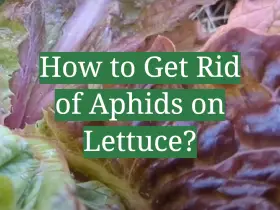
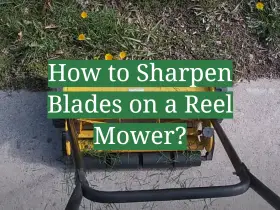
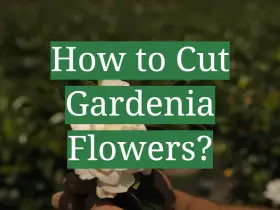
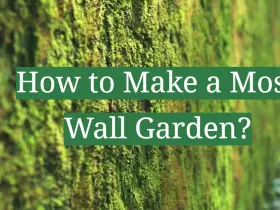
Chipmunks have been a thorn in my side for as long as I can remember. They seem to love raiding my garden, pulling up plants and digging through the soil. I’ve tried various methods to keep them out, but nothing has worked so far. Last year, I came up with what I think is the best solution yet.
I started by creating a border around the edge of my garden with chicken wire. The chicken wire is about 18 inches high, which is taller than the chipmunks. I also made sure to bury the chicken wire a few inches into the ground, so that they couldn’t dig underneath it. To further deter them, I placed some large rocks around the border.
So far, it’s been working great! The chipmunks haven’t been able to get into my garden at all. If you’re having trouble with chipmunks in your garden, I would definitely recommend trying this method.
When I moved into my new house, I was excited to start gardening. I had a large yard with plenty of room for flowers, vegetables, and trees. The first few days, I spent time weeding and tilling the soil. I also planted some flowers and started watering them regularly.
The next weekend, I went to the garden center and bought some veggies to plant. As I was digging a hole for a tomato plant, I saw a chipmunk running through the grass. I was so excited to have wildlife in my yard, but I quickly realized that the chipmunk was not going to be friendly. It kept coming back and digging up my plants!
I tried yelling at it, spraying it with water, and putting a metal fence around the garden, but nothing worked. The chipmunk just kept coming back. Finally, I decided to get a cat. A few weeks after getting the cat, the chipmunk disappeared and hasn’t come back since.
If you are having problems with chipmunks in your garden, try getting a cat. They are natural predators of chipmunks and will help keep them away from your plants.
I have always had a love-hate relationship with chipmunks. I love to watch them play and scurry around, but I hate when they invade my garden and eat all of my plants! This year, I decided that I was going to find a way to keep them out of my garden.
After doing some research, I found that there are a few things that you can do to keep chipmunks away. One of the easiest ways is to use a deterrent like cayenne pepper or mothballs. You can also try burying wire mesh below the surface of your garden, as chipmunks don’t like to cross over anything sharp. Finally, if you have a dog or cat, you can let them patrol your garden; chipmunks are scared of animals larger than they are.
I tried a few of these methods and so far, they seem to be working! My garden is free of chipmunks and I am able to enjoy the fruits (and vegetables) of my labor.
Chipmunks can get through chicken wire, but it is much more difficult for them to do so than if they were going through a hole that was just a few inches wide. I had a problem with chipmunks getting into my garden last year, and I found that the best way to keep them out was to put up a fence around the garden made out of chicken wire. The fence was about 6 feet high, and it worked well to keep the chipmunks out.
There are a few plants that deter chipmunks, and I’ve had success with them in my garden. One is garlic, which they don’t seem to like the taste of. I plant it around the edges of my garden, and it seems to help keep them out. Another is catnip. I haven’t tried this one in my garden, but I’ve heard that it works well. You can either plant it directly in the ground or pot it up and place it near where the chipmunks are getting into your garden.
I have been dealing with chipmunks in my garden for as long as I can remember. Every year, they seem to find a new way to get into the garden and wreak havoc on my plants. This year, I finally decided to take action and figure out how to keep them out for good.
After doing some research, I found that there are a few things that you can do to keep chipmunks out of your garden. First, you can install a fence around the perimeter of your garden. Make sure that the fence is at least 6 feet tall, because chipmunks can jump pretty high.
Another thing that you can do is to install a wire mesh barrier around your plants. The mesh should be at least 2 inches wide and buried at least 6 inches below the surface of the soil. This will prevent chipmunks from digging in and eating your plants.
Finally, you can use deterrents such as chili powder or mothballs to keep chipmunks away from your garden. Simply sprinkle the deterrents around the perimeter of your garden or place them in strategic locations near your plants.
There are a few different ways to keep chipmunks out of your garden, and I have tried all of them. The best method that I have found is a combination of fencing and deterrents. By using both of these methods, you can create a virtually chipmunk-proof garden.
When I moved into my house, I inherited a lovely garden. The previous owner had obviously taken great care in planting and tending to the flowers, bushes, and trees. One day, shortly after I moved in, I noticed a small creature furtively darting about in the garden. At first I thought it was a squirrel, but then I realized that it was much smaller. Upon closer inspection, I identified the creature as a chipmunk.
I soon learned that chipmunks can be quite pesky creatures. They would dart into the garden every day to snatch up some of the ripe berries or vegetables. They were especially fond of my tomatoes! As much as I enjoyed watching them play in the garden, I didn’t want them eating all of my hard work.
So, I did some research on how to get rid of chipmunks and came up with a few ideas. One method was to place a wire mesh fence around the garden to keep them out. But that seemed like a lot of work and it would be expensive to buy wire mesh fencing material.
I eventually decided on using a humane trap to catch the chipmunks. I set up the trap near where I had seen them most often in the garden and baited it with some sunflower seeds. Within a few days, I caught two chipmunks in the trap! After releasing them a few miles away from my house, they never returned.
Chipmunks are cute little creatures, but when they start raiding your garden for food, they can become quite a nuisance. I’ve tried several methods to keep them out of my garden, but the one that seems to work the best is using a wire fence. I put the fence around the entire garden, and then bury it a few inches below the surface so the chipmunks can’t dig their way in. I’ve also had good results using deterrents like pepper spray or ammonia, but those only work if you catch the chipmunks in the act. In any case, these methods take a little bit of effort, but they’re worth it to keep your garden free of these little pests.
I have a very large garden and each year the chipmunks seem to find a way to get in and eat my vegetables. I have tried different things to keep them out, but nothing has worked so far. This year, I decided to try using natural deterrents. I put peppermint oil on some of my plants and sprinkled cayenne pepper around the edges of my garden. It seems to be working so far! The chipmunks aren’t coming into my garden as much and when they do, they aren’t eating anything. I’m glad I found a way to keep them out that doesn’t involve using any harsh chemicals.
I have had success with keeping chipmunks out of my garden by using a combination of methods. One method is to create a physical barrier around the garden using a wire fence. The fence should be at least six inches high, as chipmunks can jump pretty high. I also like to use deterrents such as pepper spray or cayenne pepper powder to keep them away. Another method that has worked well for me is to bury wire mesh below the surface of the soil around the edge of the garden. This will prevent them from digging in and raiding your plants. whichever method you choose, make sure to keep it up year round, as chipmunks are persistent creatures!
Chipmunks have always been a problem for me. They seem to love getting into my garden, where they eat all of my vegetables! I have tried different things to keep them out, but so far nothing has worked. I’ve tried spraying them with water, putting up fences, and even using traps, but they always seem to find a way in.
I was getting really frustrated, until one day I came up with a new idea. I put some hot pepper sauce on the vegetables in my garden, and since then the chipmunks haven’t been back! It’s a bit of a pain to have to do this every time I want to eat something from my garden, but it’s worth it to not have to deal with those little pests.
Chipmunks can be a real nuisance in the garden. They can eat all of your plants and dig up your soil. I have found the best way to keep them out of the yard is to use a repellent. I have tried different ones, but the one that seems to work the best is a mixture of castor oil and hot sauce. I mix 1/2 cup of castor oil with 1/4 cup of hot sauce and put it in a spray bottle. I then spray it around the edges of my yard and on any plants that I don’t want the chipmunks to eat. The castor oil makes their skin itch and the hot sauce makes their mouth burn, so they stay away!
Chipmunks have been a common problem in my garden for as long as I can remember. I’ve tried all sorts of remedies to keep them out, but nothing has worked so far. Last year, I finally decided to try a home remedy that my grandmother had always sworn by. I mixed together equal parts of ammonia and water in a spray bottle and sprayed it around the perimeter of my garden. It seemed to work pretty well! I didn’t see any chipmunks in my garden all season long.
I am going to share with you my method of keeping chipmunks away from my garden. I have tried many things over the years, but this is the one that has worked the best for me. I put a wire fence around the perimeter of my garden. I make sure the fence is at least 12 inches high, and I also put chicken wire on top of the fence. The chicken wire prevents the chipmunks from climbing over the fence, and it also keeps them from digging under the fence. This method has been working well for me for many years, and I have not had any problems with chipmunks getting into my garden.
Chipmunks have always been a problem for me. I remember when I was young, we had a huge chipmunk problem at our house. They would get into the pantry and eat all of our food, and they would also dig holes in our garden. We tried all sorts of things to keep them away, but nothing worked. Finally, my dad built a fence around the garden, and that solved the problem.
I live in a house now with a big garden, and I have been dealing with chipmunks ever since. I have tried all sorts of things to keep them away, but nothing has worked as well as the fence did for my dad. I have even tried putting up fences around the garden, but the chipmunks just climb over them.
I have finally come up with a solution that seems to be working. Every evening, before I go to bed, I go out into the garden and spray it with pepper spray. The chipmunks don’t like the smell of pepper spray, and they stay away from the garden after that.
Chipmunks have always been a thorn in my side when it comes to keeping my garden looking nice. I’ve tried just about everything to keep them out, but nothing has worked so far. Last year, I finally got fed up and decided to do some research on how to keep chipmunks out of the garden. I found a few tips that have worked well for me so far.
First, I made sure to use wire mesh around the bottom of my garden to prevent them from getting in. I also used wire mesh around all of the plants that they might be interested in eating. This has worked well so far in keeping them out of the garden.
Another thing that has helped is using deterrents like peppermint oil or chili powder. I put these deterrents around the edges of the garden and near any plants that the chipmunks might be interested in eating. So far, this has been working as well.
Overall, these tips have been working well for me, but I’m always on the lookout for new ways to keep those pesky chipmunks out of my garden!
Chipmunks are pesky little creatures that can be difficult to get rid of. I have had problems with them in my garden in the past, and have tried a few different methods to get rid of them. The most effective method that I have found is to use a repellent spray.
I have tried both homemade and store-bought repellents, and both seem to work equally well. The key is to make sure that you spray the repellent on all of the plants that the chipmunks are targeting. You may also need to reapply the repellent every few weeks, especially if it rains a lot.
Another thing that you can do to keep chipmunks out of your garden is to use barriers. You can either bury wire mesh beneath the soil around your garden, or you can install a fence around the perimeter. Either of these methods will help to keep chipmunks from entering your garden.
When I moved into my house, there were chipmunks everywhere. They would come up to the deck, steal the bird food, and run away. It was so cute at first, but then they started getting into the garden and eating all of the vegetables! I tried using different methods to keep them out, but nothing seemed to work.
I finally came up with the perfect solution: I put a fake owl in the garden. The chipmunks saw it and ran away scared! Now they stay away and I can enjoy my garden without any interference.
Chipmunks can be pesky little creatures. They seem to enjoy eating plants, and they can be quite determined in their efforts to get to them. I’ve tried various ways of keeping chipmunks out of my garden, with varying degrees of success.
One method that has worked pretty well for me is using a physical barrier. I place some chicken wire around the plants that I want to protect, and the chipmunks can’t get through. This method is effective, but it can be a bit of a pain to set up and it’s not always practical.
Another solution that has worked for me is using a repellent. There are various types of repellents available, and you can find one that works best for you. I’ve found that sprays work better than pellets, because the smell is stronger and the chipmunks are less likely to get used to it. I’ve also had good luck with using cayenne pepper as a repellent; it’s not harmful to the plants and the chipmunks really don’t like the taste.
Whatever method you choose, it’s important to be consistent in your efforts. If you stop using the repellent or remove the chicken wire, the chipmunks will probably start eating your plants again. So keep at it, and eventually you’ll win this battle!
I have a garden that I love to spend time in, but the chipmunks always seem to find a way to ruin it. They dig in my flower pots, and it’s so frustrating! I’ve tried using deterrents like hot pepper flakes and cayenne pepper, but that hasn’t seemed to help. I’ve also tried traps, but the little buggers are just too smart for that. Does anyone have any other ideas on how to keep chipmunks out of the garden?